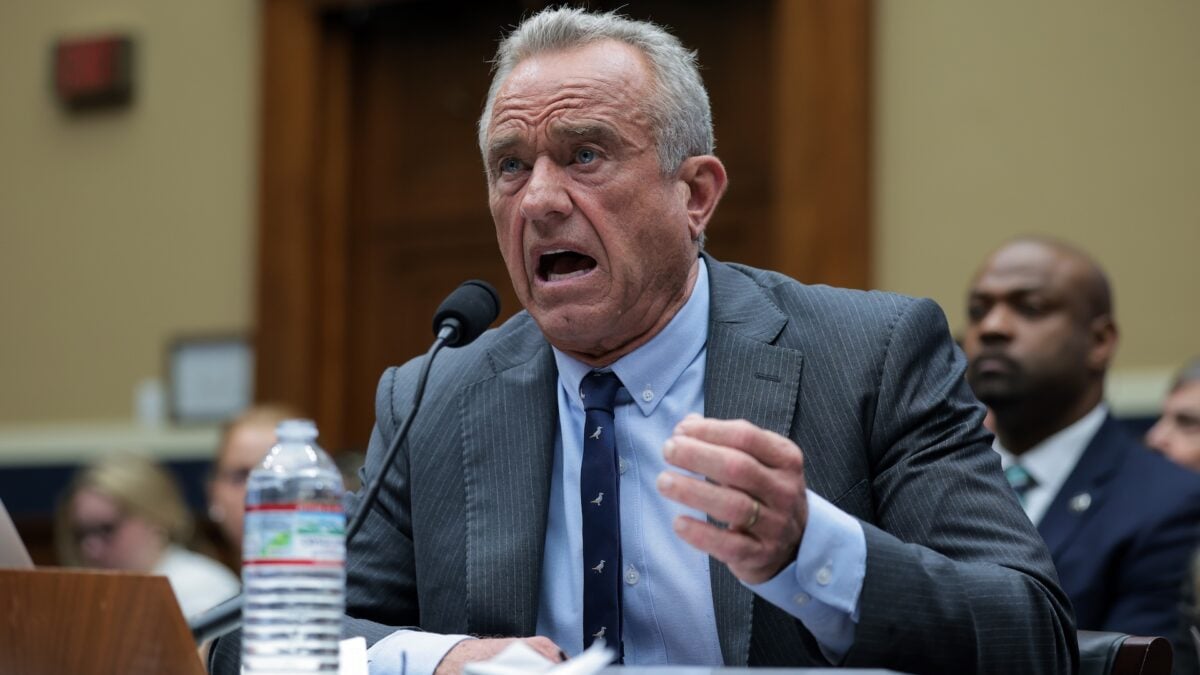In a significant downturn for public confidence, a recent KFF poll indicates that Americans are increasingly skeptical of the Centers for Disease Control and Prevention (CDC). The results show trust levels have hit a nadir reminiscent of the peak of the COVID-19 pandemic.
Conducted shortly after a contentious press conference led by former President Donald Trump and newly appointed Health Secretary Robert F. Kennedy Jr., the poll sheds light on attitudes towards federal public health agencies. Notably, trust in the CDC to provide reliable vaccine information has plummeted, with only 50% of Americans expressing confidence in the agency’s guidance—a stark contrast to the faith they place in their personal healthcare providers.
Key findings from the poll, which surveyed over 1,300 American adults both online and via telephone, include:
– **Trust Levels**: Only 18% of respondents reported a “great deal” of confidence in the CDC’s vaccine information, with an additional 32% claiming they had a “fair amount” of trust. This represents a sharp decline from April, when 59% of participants indicated some level of trust in the CDC. In fact, trust had already been on a downward trend, as 63% of individuals reported confidence in the agency earlier in 2023. This marks the lowest trust level recorded since early 2020, according to KFF.
– **Personal Healthcare Providers**: In contrast to the dwindling confidence in the CDC, a strong majority of respondents—83%—still trust their personal doctors to provide reliable vaccine information. Furthermore, approximately two-thirds of Americans have confidence in organizations like the American Medical Association (64%) and the American Academy of Pediatrics (69%) regarding vaccine guidance. Notably, 80% of surveyed individuals agreed that public schools should mandate certain vaccines for students, including 75% of Republican respondents.
**The Kennedy Factor**
The declining trust coincides with growing disapproval of Kennedy’s performance in office. Approximately 59% of respondents expressed disapproval of his overall job performance, with 62% criticizing his handling of vaccine policies. Kennedy has a long-standing reputation for vaccine skepticism and has taken actions since his HHS appointment that appear to oppose established vaccine policies and scientific consensus, further eroding confidence in the CDC.
Earlier this summer, former CDC Director Susan Monarez was dismissed after reportedly refusing to endorse vaccine recommendations proposed by a committee largely composed of Kennedy’s allies, many of whom have histories of questioning vaccine safety. Following this, acting CDC director Jim O’Neill—a supporter of Kennedy—has called for revisions to the long-standing measles, mumps, and rubella (MMR) vaccine, echoing sentiments from the anti-vaccination movement.
The KFF poll also highlighted public awareness regarding Trump’s controversial claim linking Tylenol use during pregnancy to an increased risk of autism. While 77% of respondents reported familiarity with the statement, only 4% deemed it “definitely true,” and another 30% said it was “probably true.” In contrast, 35% categorized it as “definitely false,” with another 30% marking it “probably false.” Disturbingly, belief in this assertion appeared to be polarized along party lines, with Republicans more likely to accept the claim as plausible.
Critics have pointed out that both Trump and Kennedy’s assertions rely on shaky and inconsistent evidence, with no strong scientific backing for a link between Tylenol and autism.
The ebb and flow of public trust in the CDC and similar health agencies can be attributed to various factors, including political influences and changing perceptions of leadership effectiveness. The latest polling highlights the direct impact of Kennedy’s rise and his efforts that appear to reshape the narrative surrounding vaccines and child health in the United States. As the landscape shifts, the challenge remains for health agencies to regain the trust of the American public in a time when vaccine skepticism is growing louder.






